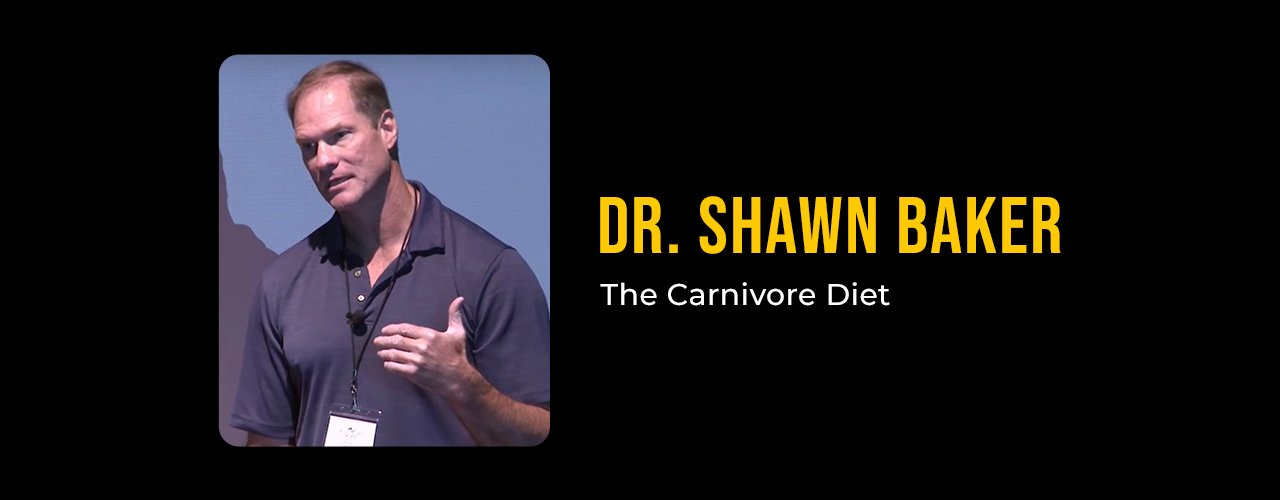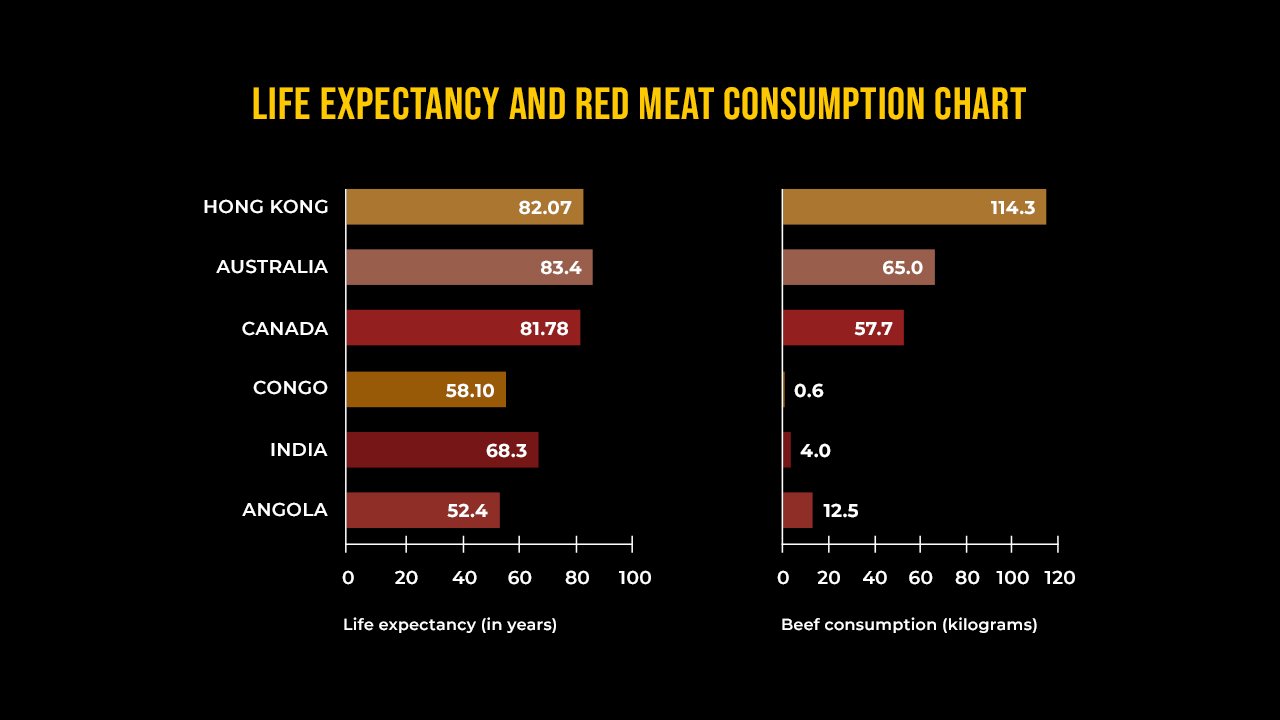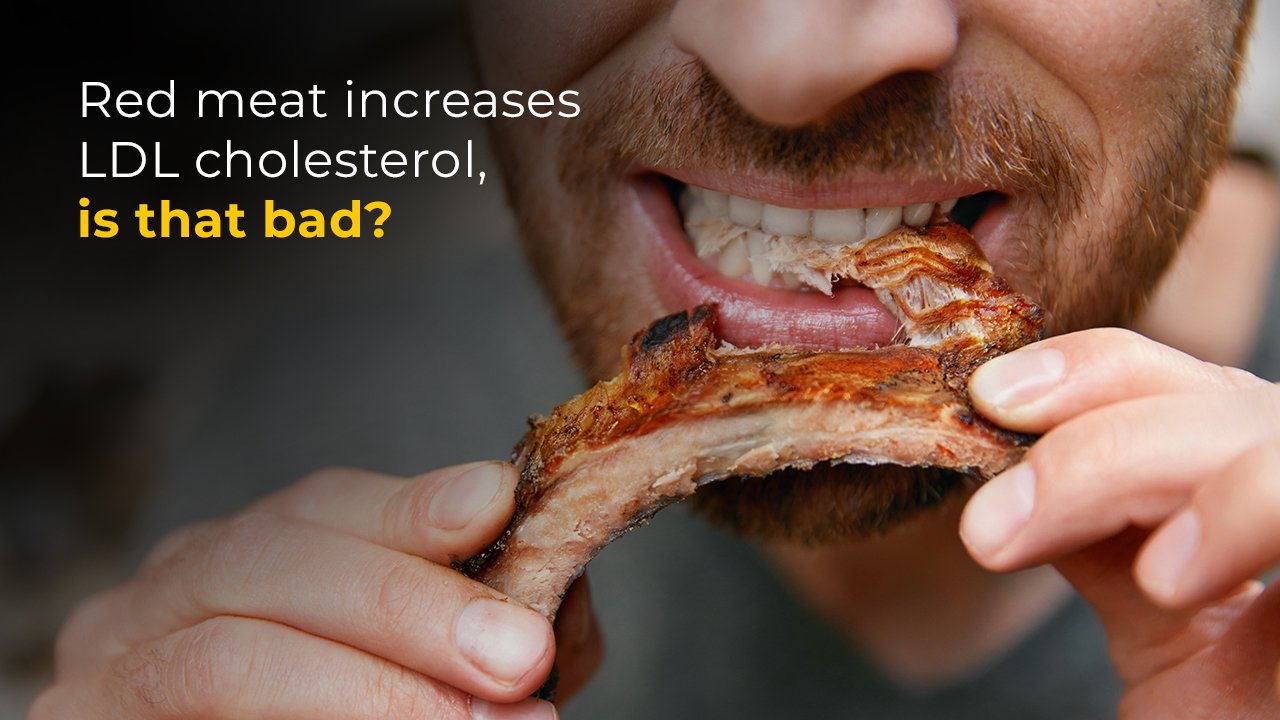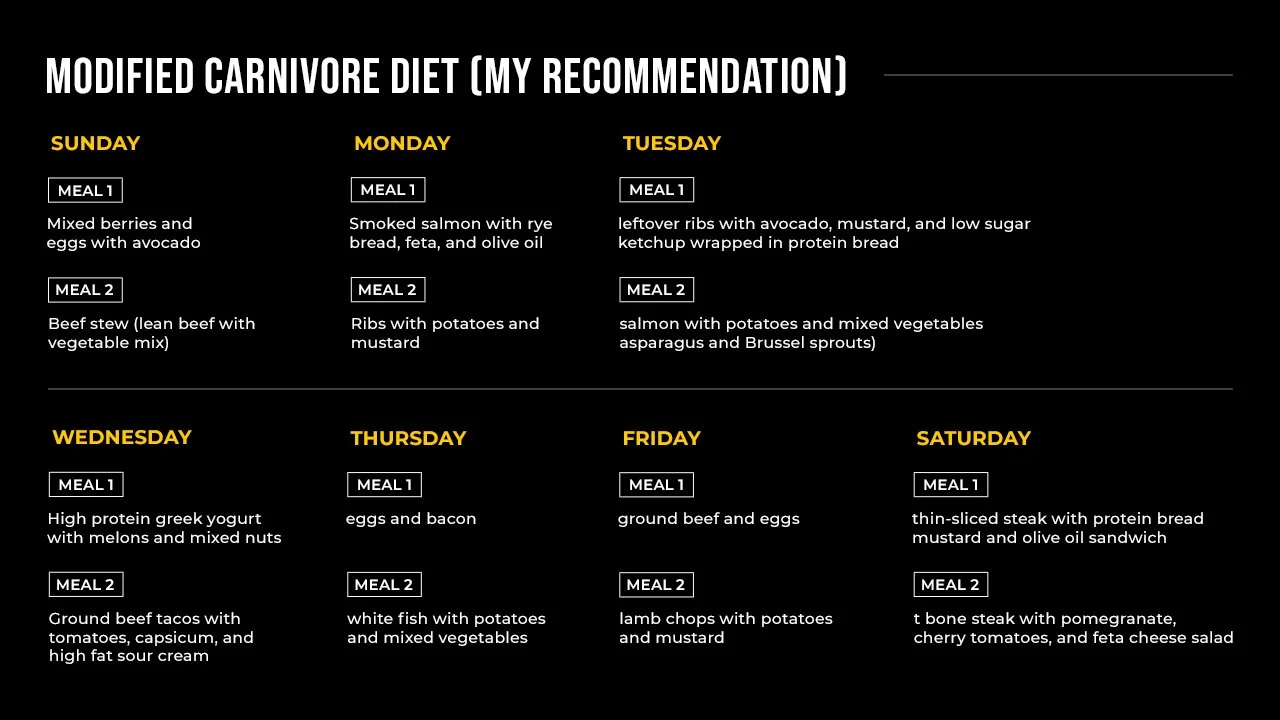Carnivore Diet: Review, Benefits, Potential Side Effects, Environmental Issues & Weekly Meal Plans
The Carnivore Diet is a diet that consists predominantly of animal products and is traced back to ancient times when humans relied heavily on hunting for food. In recent years it has begun to rise in its popularity. Mainly as a result of people becoming sicker and fatter despite following to a greater or lesser extent the recommendations from organizations like the U.S. Department of Health and Human Services (HHS), the U.S. Department of Agriculture (USDA), and organizations like Food and Agriculture Organization of the United Nations (FAO).
At the forefront of this battle to bring back the mainstream acceptance of the carnivore diet, there have been many doctors, nutritionists, fitness enthusiasts, and celebrities, but in this blog, I will mention only two names that have had the most influence on me.
Blog Outline
Who was Aajonus Vonderplanitz the creator of the carnivore diet?
Who is Dr. Shawn Baker one of the biggest proponents of the carnivore diet?
What are the potential benefits of a carnivore diet?
What are the potential side effects of a carnivore diet?
Is overeating meat bad for your health?
What foods are typically included in the carnivore diet?
Can steak be considered a superfood?
What are some of the potential side effects of overeating red meat?
Do all studies support the claim that you should eat less red meat for your health?
How does weight loss work on the carnivore diet?
Does eating beef have a bad impact on our planet?
Free carnivore diet 2-week meal plan
Is the carnivore diet a good weight loss & health tool for people living in Dubai?
1. Who was Aajonus Vonderplanitz the creator of the carnivore diet?
Aajonus was a very controversial person in the field of health & nutrition. He founded the Primal Diet, a low-fat, high protein diet. The Primal Diet is very similar to the carnivore diet in that they both include a lot of animal products and exclude grains & vegetables. The difference between the two diets is that Aajonus included only primarily raw foods, including fruits and raw dairy, on his Primal program. The Carnivore Diet on the other hand is a diet in which dairy and fruits are kept at a minimum if not completely avoided.
He claimed that his high protein raw diet was the key to his recovery from terminal cancer. Aajonus passed away in 2007, but his Primal Diet and The Carnivore Diet still have a large following of people who believe that mainly eating meat is good for the body.
Aajonus Vonderplanitz had some strong opinions about diet and health & wellness overall. He advocated for living foods and against cooking or heating food above 118 degrees Fahrenheit. The reasoning behind this is that when food is cooked above 118 degrees, the enzymes are killed, and our bodies have a hard time digesting them. This can lead to poor digestion, weight gain, and an overall feeling of being tired or run down.
While I don't agree with everything Aajonus believed in, I do think that eating a diet high in protein and low in carbohydrates is a good idea for most people. The Carnivore Diet eliminates many problems people have with other popular diets like Atkins or Paleo because it is so simple - just eat meat!
The Carnivore Diet has some potential side effects, which we will discuss a bit later.
2. Who is Dr. Shawn Baker one of the biggest proponents of the carnivore diet?
Dr. Baker is yet another controversial person in the health & fitness industry. He is a former orthopedic surgeon that served in the U.S. Navy for 11 years. He is an athlete and a world record holder in the deadlift and bench press.
Natural Association Of Strength Athletes Deadlift American Record 772lbs
World Association of Bench Press and Deadlift Submasters World record (Deadlift 738lbs)
USA powerlifting 40+ Master American record (Deadlift 711lbs)
He was very unhappy with how the USA's medical society works and the way they treat their patients. That's why he decided to start his practice.
He advocates for a Carnivore Diet, which is eating nothing but meat. The diet consists of red meat, poultry, fish, eggs, and dairy products. There are no fruits or vegetables on this diet. Baker says that humans have been eating this type of diet for centuries, and there are no signs that this is a bad diet. , the Carnivore Diet can have many benefits such as weight loss, mental clarity, and increased energy levels.
He claims that he is living proof that the Carnivore Diet works to manage his autoimmune issues, but there are some skeptics out there claiming this may be nothing more than another fad diet or gimmick. These skeptics can not argue against hundreds of people that Shawn has managed to transform on a carnivore diet. If you read through some of the testimonials, you will find people that have been able to cure their autoimmune diseases, diabetes, arthritis, and the list goes on. So I guess only time will tell whether one of the strongest supporters of the Carnivore diet was right!
The carnivore diet explained
The Carnivore Diet is a high protein, low carbohydrate diet. Most people try to eat 100% animal products like meat (including organ meats), fish & seafood, eggs & egg whites, and minimal dairy (if tolerated). The Carnivore Diet is similar to The Ketogenic Diet and The Paleo Diet.
3. What are the potential benefits of a carnivore diet?
The benefits of The Carnivore Diet include:
increased energy
reduced inflammation, which can help with depression or fighting cancer.
fixing skin issues like acne
potential mental clarity & improved focus.
improved gut health
reduction in migraines
It is vital to understand that there are no published clinical studies on The Carnivore Diet, and the fact that some people experience fast results does not mean that it works for everyone! Only long-term observational studies and clinical studies will give us the information we need to know with certainty that the carnivore diet is the best and safest solution out there.
4. What are the potential side effects of a carnivore diet?
It is worth mentioning that once you start your journey on a carnivore diet, you will most probably experience some minor side effects like :
fatigue
bad breath (from the high protein intake & build-up of ketones)
constipation (from lack of fiber in the diet)
low energy levels initially until The Carnivore Diet gets adapted by your body.
increased urination due to The Carnivores Diets diuretic effects
These side effects are usually temporary and should dissipate within a few weeks or months once your body has adjusted. If any of these side effects persist, please consult with your health practitioner).
The potential side effects are mainly due to nutrient deficiencies such as a lack of fiber which you can easily avoid by having some low-carb vegetables with your meals or taking a fiber supplement.
5. Is overeating meat bad for your health?
First, we should define what health is?
Is it defined by how long you live or how you live your life? I am saying this because someone can live up to 80 but spend the last 20 years in a wheelchair or hospital bed? Someone can live up to 90 years but be in pain for most of their lives. That's why I want to define health as living a pain-free life in which your health allows you to move freely, perform well at work and in your household, which means that you can bend, squat, jump or run a few meters without losing your breath. Also, having all the lab markers within the recommended zones even at old age and staying away from the hospitals and doctors would be something I would define as good health.
Is the carnivore diet going to provide the above?
The most honest answer is that we do not have any long-term clinical studies to confirm or reject its ability to do so.
We have thousands of testimonials from people who have truly transformed their lives on the carnivore diet.
What the carnivore diet can help with most certainly is balancing your blood sugar levels, reducing cravings, and helping you reach adequate amounts of protein reasonably easily.
The other great thing about the carnivore diet is that it is simple to follow and requires you only to eat 2 to 3 times a day which is a game-changer for most busy people.
How many grams of protein you consume per day is highly correlated with the amount of muscle you will be able to put on and preserve, and as I said, on a carnivore diet, you can easily hit your daily goals.
Now let's answer perhaps the most critical question: "Is too much meat bad for your health?"
The answer is too much of anything is bad for you. The good thing is that when on the carnivore diet, your body will adjust itself, so you will start to feel satisfied much sooner than you reach that stage of eating more meat than what your body can handle and what is good for you. Usually, on the carnivore diet, your appetite will start to go down in a few weeks, and then it will balance out. You will eat only as much as you need. That does not happen with highly processed foods that make you more addicted to them.
If you have high blood cholesterol, you might go more for cleaner cuts of meat like fish and chicken. The bottom line is that this diet is very customizable to each person's needs.
6. What foods are typically included in the carnivore diet?
beef
lamb
pork
chicken
turkey
fish
cheese
butter
eggs
Other food sources that can be added to the carnivore diet are:
olives
avocado
honey
nuts
seeds
herbs
spices
The following is a list of some foods that are typically not included in the carnivore diet:
bread
rice
pasta
potatoes
most fruits, except berries
sugar
all processed foods
7. Can steak be considered a superfood?
People consider steak to be a superfood due to the number of nutrients you can get from eating steak and the high amounts of protein that is in steak. This "superfood" is also rich in iron (2.4 mg per 100 grams of steak), zinc (4-8 mg per 100 grams of steak), and vitamin B12 (approx. 5mcg per 100 grams of steak).
Steak is also a good source of creatine, beneficial for athletes and bodybuilders. The high protein content of steak can help you build muscle, lose weight, and improve your overall health.
8. What are some of the potential side effects of overeating red meat?
Excess consumption of red meat has been linked to heart disease, colon cancer, and other health problems.
According to an Oxford study, red and processed meat was linked to an increased risk of heart disease. This was the largest review of all large-scale studies that indicated that red and processed meat increase the risk of heart disease.
In a meta-analysis of 29 studies of meat consumption and colon cancer, the conclusion was that high consumption of red meat increases the risk of colon cancer by 28%, and increased consumption of processed meat increases risk by 20%.
9. Do all studies support the claim that you should eat less red meat for your health?
A study published in the Annals of Internal Medicine says that you can continue eating red and processed meat as you did before.
Let's dive deeper to see what they say!
Scientists reviewed randomized trials on harms and benefits. In total, they reviewed 12 unique trials that enrolled 54 000 participants. They found low to very low certainty evidence that diets lower in unprocessed red meat may have little or no effect on the risk for significant cardiometabolic outcomes and cancer mortality.
They viewed 23 cohort studies that had 1.4 million participants, and they observed low to very certainty evidence that decreasing unprocessed red meat intake might result in a minimal reduction in the risk for major cardiovascular outcomes (stroke, myocardial infarction, and cardiovascular disease) and type 2 diabetes (range, one fewer to 6 fewer events per 1000 persons with a decrease of 3 servings/wk), with no statistically significant differences in 2 additional outcomes (all-cause mortality and cardiovascular mortality)
What about overall lifetime cancer mortality?
The dose-response meta-analysis results from 17 cohort studies with over 2 million participants again pointed out that decreasing unprocessed red meat intake resulted in a minimal reduction of overall lifetime cancer mortality (7 fewer events per 1000 persons with a decrease of 3 servings/wk). It also demonstrated no statistically significant differences for eight different cancer outcomes (prostate cancer mortality and the incidence of overall breast, colorectal, esophageal, gastric, pancreatic, and prostate cancer).
This review also reviewed cohort studies that assessed dietary patterns (70 cohort studies with just over 6 million participants) once again provided mostly uncertain evidence for the risk for adverse cardiometabolic and cancer outcomes.
I know that by now, you must be very confused with all the conflicting evidence when it comes to red meat consumption. I also most certainly know that your doctor is unaware that science is not settled regarding red meat consumption and various health outcomes. That's why they advise clients to reduce red meat consumption in the majority of cases.
What about life expectancy and red meat consumption?
Once again, we have conflicting evidence. If we look by country, then Hong Kong, Australia, and Canada, which are countries in which people consume over 50kg of beef per capita (meaning per person), live 15 to 30 years longer than in countries like Congo, India, and Angola in which consumption per capita is less than 15 kilograms.
I know what you think right now!
I used three rich countries, compared them to three developing countries, and concluded to prove my point. To be fairer, say I adjusted the difference by saying that wealth represents a factor of 0.4. Still, the countries with higher beef intake will have a 9-18 years longer lifespan.
What about cholesterol?
The scientific community has undoubtedly concluded that increased consumption of red meat rich in saturated fats increases your cholesterol levels. That increase in cholesterol is related to the development of cardiovascular disease. The more LDL (low-density lipoprotein) particles are circulating in the blood, which carries cholesterol from the liver to cells that need it for biological functions of hormones, etc. The greater risk you have of developing heart disease.
They fail to address the fact that if you plan your diet smartly, you increase your red meat intake and reduce the number of processed foods and carbs you eat; your markers like insulin levels and blood glucose will go down. You will become leaner, and your systemic and vascular inflammation will decrease.
To understand this a bit better, let's quote Dr. Shawn Baker: "Let's use some arbitrary numbers and say that risk of heart disease goes up 20 percent if you have LDL higher than 130, but it goes down 150 percent if your insulin is lower than 3. Heart disease goes down another 85 percent if your waist is smaller than your height, and it goes down a further 120 percent if you have a C-reactive protein (which is a marker of inflammation) level lower than 1.0."
Dr. Shawn is trying to paint here that your risk of heart disease would overall be fairly less on a carnivore diet. That's why it is essential not to miss the big picture when discussing nutrition and nutrition recommendations.
10. How does weight loss work on the carnivore diet?
With over ten years of experience working with people predominantly focused on weight loss, I can confidently say that most overweight and obese individuals are starved. They are getting too many calories but too little nutrients in most cases. Their diets are poor in vitamins and minerals and do not give the body the proper nourishment that it needs! Most of these people do not consume near enough protein and are depleted of Vitamin D and essential fatty acids.
The carnivore diet is a high-protein, low-carbohydrate diet that can help these individuals lose weight healthily and sustainably. The body begins to burn stored fat as its primary energy source when it does not have carbohydrates to rely on as fuel. The carnivore diet provides you with a sufficient amount of protein, and it keeps you satisfied, which helps you curb cravings.
We already know that food is highly addictive. The more processed it is, the higher its impact on our brain. Some processed foods create the same addiction as alcohol and drugs. Big food has become good at making processed foods that are not only highly addictive but also cause us to crave more (interlink with a hungry brain book review). The carnivore diet cuts out all of the junk food and provides you with lots of protein and almost no carbohydrates, which is bound to keep you satisfied for more extended periods!
When you are on a carnivore diet getting enough protein is not an issue. The great thing about it is also that a good chunk of that food will be used during thermogenesis which is a process that helps us lose weight. The body has to use energy (burn calories) to digest and absorb protein. This is commonly referred to as the "diet-induced thermogenesis" effect, and it accounts for about 20-30% of the total daily energy expenditure. It is also very difficult for protein to turn into fat, while it is effortless for carbs to turn into fat. On a carnivore diet, your insulin levels are also stable, resulting in more balanced energy levels and fewer cravings.
As with any diet, the key to weight loss is always a caloric deficit. You can be on a carnivore diet and gain weight if you consume more calories than you burn.
Two things that make The Carnivore Diet a tremendous weight-loss tool:
Simplifies your life
Highly satiating and reduces cravings
11. Does eating beef have a bad impact on our planet?
Documentaries like Cowspiracy: The Sustainability Secret and many other popular vegan-friendly documentaries create a lot of hype founded on highly debatable and skewed data.
I will provide one piece of information here to paint the picture for you. The documentary Cowspiracy: The Sustainability Secret claims that animal agriculture creates 51 percent of greenhouse gases worldwide. That statement is incorrect, and the number is far less.
Let's look at what the Food and Agriculture Organization of the United Nations has to say about greenhouse emissions from animal agriculture: "Total emissions from global livestock: 7.1 Gigatonnes of Co2-equiv per year, representing 14.5 percent of all anthropogenic GHG emissions. On a commodity basis, beef and cattle milk are responsible for the most emissions, respectively, contributing 41 percent and 20 percent of the sector's overall GHG outputs.
They inflated the actual number by 36.5 percent, which is highly unethical, especially when millions of people worldwide that have limited ability to discern fact from fiction will watch it and base their diet accordingly.
What about deforestation?
Cattle farming is horrible for deforestation of the world's forests shouts; the activist infuriated over how we meat-eaters don't understand the demise we are heading into. In ten years, we won't have forests anymore.
Well, I guess he forgot to look at the actual data again. Even though animal agriculture belongs to the top 5 causes, we have more trees now than we had 35 years ago.
According to the Food and Agriculture Organization of the United Nations (FAO), the United States of America has more trees than 100 years ago.
We also have more trees in the world now than we have ever had before.
As someone who understands the benefits of consuming a meat-based diet but at the same time is conscious about the environmental damage it might have, I suggest we try to find balance in our approach. Do not destroy your health for the benefit of the planet. Rather, try to peak as a human in terms of performance and health because you will be way more helpful for everyone around you, including your planet.
Do not let guilt get the best of you and leave the big corporations to solve the issues that they have created in the first place. They have the resources and technology to create a better future for all of us if that's what they want to do. Suppose you can do your part and buy from your local farmer if you have the means to do so. Everyone should do what is best for their health and consider what is better for the environment.
12. Free carnivore diet 2-week meal plan
Strict carnivore diet
Free modified carnivore diet (my recommendation)
For a personalized meal plan click here.
As you can see above, my recommendation is only two meals daily. However, if you get starving, you can snack once between the two meals. If your goal is to lose weight, keep the snacks light, and if your goal is to bulk up and put on more muscle tissue, you need another strong serving based on protein, basically amounting to 3 meals a day at least.
Samples of light snacks:
beef jerky (40 grams)
a handful of almonds (10-12 pieces)
one fruit of your choice - apple, orange, kiwi, etc.
dark chocolate 75% and above (40 grams)
1 cup of Kefir (300-400ml)
1 to 2 scoops of protein mixed with water or milk
one tablespoon of natural peanut butter
For our online training services and nutrition plans click here.
13. Is the carnivore diet a good weight loss & health tool for people living in Dubai?
If you look at the standard of living in Dubai, most people can afford to go on a carnivore diet and get good organic grass feed meat. If you look at how much-processed foods Dubai residents consume, we can easily say that most people are addicted to highly processed food high in trans fats, which have a detrimental effect on your health.
From my experience amongst the local population, many Emiratis struggle with high uric acid, and in that case, it would not be wise to adopt a strict carnivore diet. However, a more moderated high protein diet would still be a good solution if it would allow the person to lose the necessary weight. It would most definitely improve all the health markers, including the uric acid levels.
From my experience working with Emiratis and Expats in Dubai, most people have a terrible habit of snacking too often. Many face issues with insulin resistance which is another reason why a meat-based diet might be a good solution in the long run as it would make you more full and would help you not eat for more extended periods.
Lastly, in an area of the world troubled with obesity, anything that can help people lose unhealthy weight will have a fantastic effect on improving all health markers.
Stay Strong #BeFortius
Looking for a personal trainer in Dubai?
Looking for online training that will help you transform your physique?

















